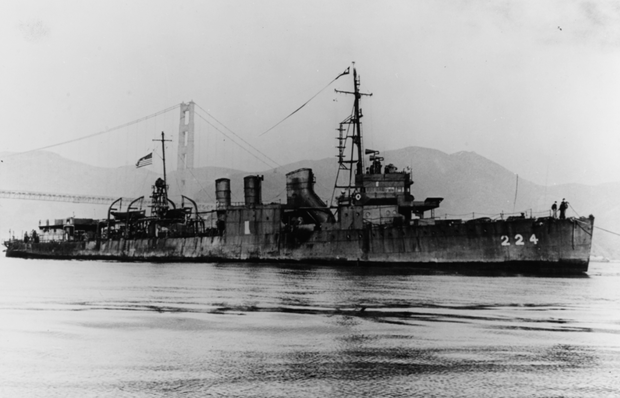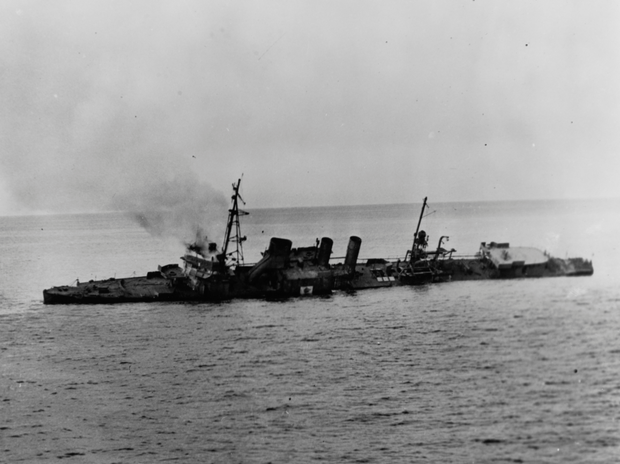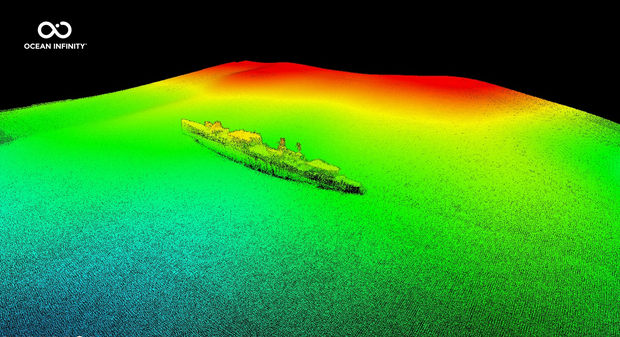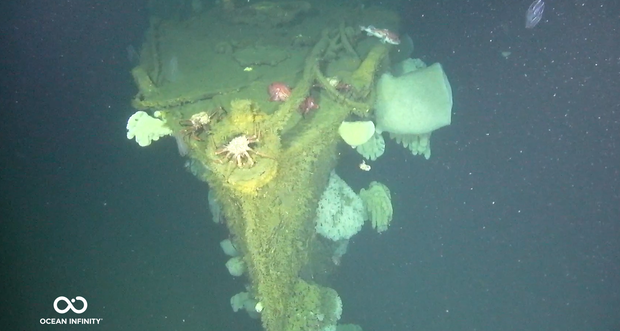A team of investigators says they have found the wreck of the USS Stewart, a U.S. Navy destroyer that served under both American and Japanese flags during World War II before it was deliberately sunk in a 1946 naval exercise.
The USS Stewart, once called the “Ghost Ship of the Pacific,” served on the front lines of World War II. It was stationed in Manila as part of the U.S. Navy’s Asiatic Fleet, according to a news release detailing its discovery, and was damaged during combat in February 1942. A freak accident trapped it in a repair drydock on Java, an island in Indonesia, and the ship was abandoned as Japanese forces approached. It was then pressed into service with the Imperial Japanese Navy as a patrol boat. Allied pilots reported seeing the ship serve in the Japanese fleet, earning it its nickname.
Donald M. McPherson / U.S. Naval History and Heritage Command
The vessel was later found in Kure, Japan after the war and recommissioned into the U.S. Navy. The ship was towed home to San Francisco and used as a target ship in one final act of service, according to the news release.
Despite the ship having been deliberately sunk, its location remained a mystery for decades. Now, 78 years after its sinking, the destroyer was found thanks to a collaborative effort between the Air/Sea Heritage Foundation, NOAA’s Office of National Marine Sanctuaries, the Naval History and Heritage Command, marine technology company Ocean Infinity, and global maritime archaeology organization SEARCH.
U.S. Navy / The National Archives
Ocean Infinity deployed three autonomous underwater vehicles off the coast of Northern California on Aug. 1, 2024. The unmanned submersibles spent 24 hours searching the area, and when the data was reviewed, researchers saw the “stunning and unmistakable image of a sunken ship 3,500 feet below the surface” of the Pacific Ocean.
Ocean Infinity
Sonar scans revealed that the ship is “largely intact” and that its hull is nearly upright on the seafloor. It may be one of the best-preserved examples of its class of ship, according to the news release, and offers valuable information about naval architecture and technology from the period it was built and operated in.
“The USS Stewart represents a unique opportunity to study a well-preserved example of early twentieth-century destroyer design,” said SEARCH senior vice president Dr. James Delgado, who was formerly the NOAA Director of Maritime Heritage. “Its story, from U.S. Navy service to Japanese capture and back again, makes it a powerful symbol of the Pacific War’s complexity.”
Ocean Infinity
After the ship was discovered, search teams conducted another survey and visual inspection, using live video feed transmitted from a remote-operated submersible. That search allowed the team behind the discovery to explore the wreck in real-time, and to learn more about the bombardment that sank the Stewart over seven decades ago.
Data collected during the surveys will also be used by NOAA’s Cordell Bank National Marine Sanctuary to support environmental assessments in the area, and learn more about habitats and marine life in this part of the ocean.










